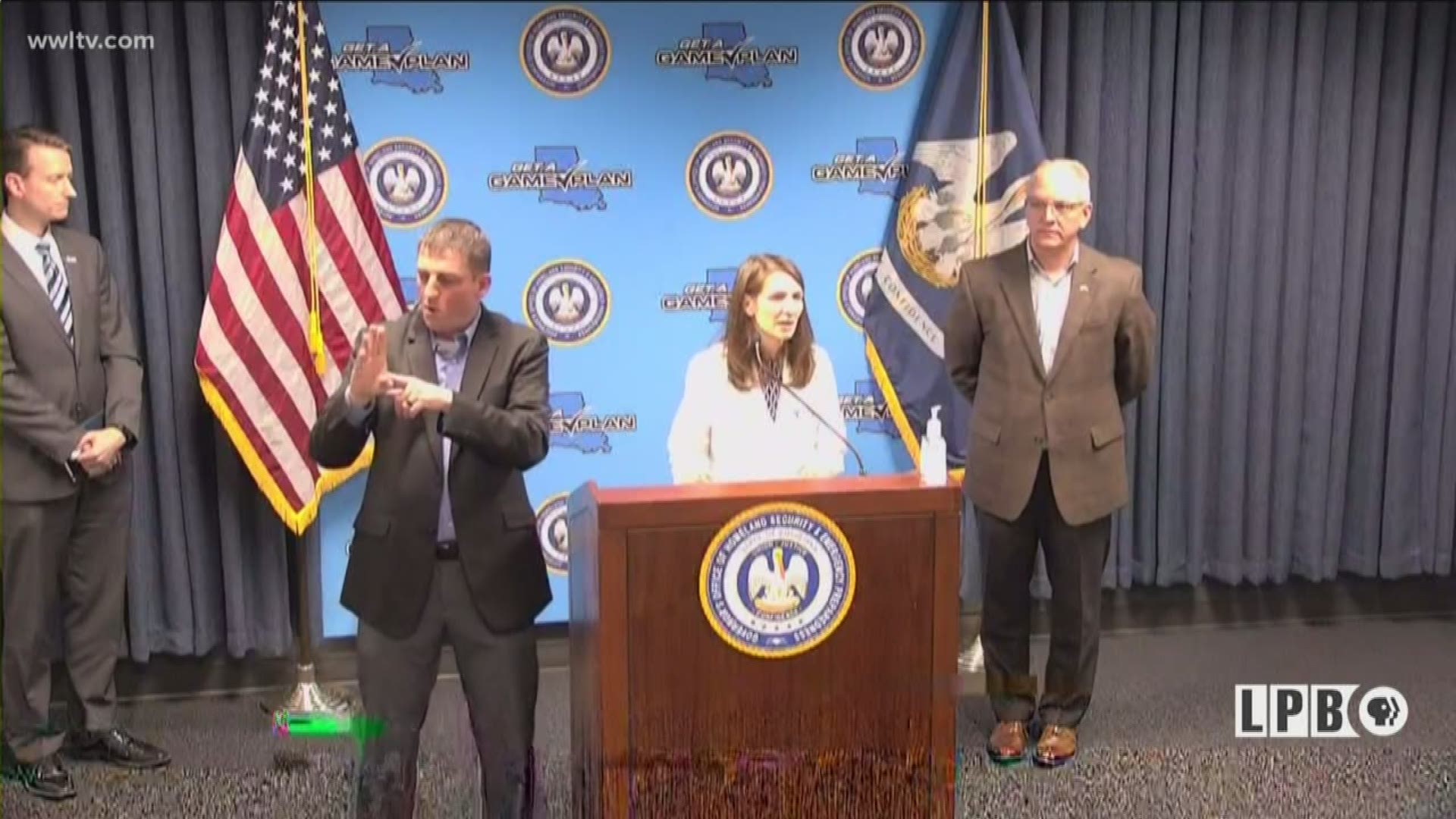BATON ROUGE, La. — The following is a transcription of Dr. O'Neal's comments at Governor Edwards' press conference Monday.
All of us will be affected by this pandemic. All of us, in every community, will feel the effects of the pandemic. Most of us will become infected over the next many months. Eighty percent of us will not feel the effects of the infections. Eighty percent of us will be asymptomatic and will feel well and will continue to go about our daily lives. We’ll go to the grocery store, play with our kids, many of us will go to work.
But, as the governor said earlier, even asymptomatic people with COVID can spread the infection. That spread is what we are worried about. The most vulnerable part of our population, for this infection, are the elderly and people with co-morbid conditions. The elderly are our grandparents and our great grandparents. People with co-morbid conditions are our peers and our co-workers – the people who teach our children. They’re our family members.
What does it mean to have a co-morbid condition? A co-morbid condition is a condition in which another condition is present. It’s a very bizarre term. Basically, it means you have two medical conditions. Think about the people in your lives who have two medical conditions, who have two bottles of medicine that they take every day. Those people are the people who surround us and they are at risk of being in the hospital, having severe morbidity, meaning being a long time in the hospital and then sometimes, in this disease often, having a fear of death.
We will see people hospitalized at great rates with this infection, in this state and we will see people die.
If we continue to allow people who are asymptomatic to come into contact with people who are vulnerable to this infection, we will see that rate increase, in a way that our health care community is not capable of taking care of these patients.
If we overwhelm our hospitals now, we will not have enough doctors, nurses and support staff to take care of patients. We will not be able to offer the best care to your loved ones. We will not have all the medications and equipment needed to treat them.
If we flatten that curve, by staying in touch with our family members and our peers and our co-workers but staying a social distance away from them, and only coming into contact in small groups, we will flatten that curve. Many people will still become ill but we will be able to care for them. We will not overwhelm the health care system and we will allow them to receive the care that we expect.
How do you do that? How do you help us flatten the curve? You have to put COVID-19 on your calendar. You have to think about your week and think about every gathering in terms of, how many people are here? Are we washing hands? Are we wiping shared surfaces? Are we staying a great distance from each other? Could we have done this remotely?
If we don’t do this, we will not be protecting our friends, our families and we will lose loved ones.
Today, think about the people around you. They are people with co-morbid conditions. They need our help and our health care workers need your help so that every day when we come to our jobs and we come to take care of our patients, we know that we can give the best care. That is only possible if we slow down this curve of infection. If we allow it to occur over a long period of time, and we let the system take care of each patient the way we want them to be taken care of.
I come from a very small town, full of Cajuns, and we love to hug each other and we love to feed each other and we’re going to have to do that in very small groups – one person at a time, washing our hands each time. And from now on, we’re going to have to give some type of elbow bump and I would prefer it to be in the air. But, if we do that, we’ll be here next year, gathering again having crawfish boils and going about life.
That’s what we ask of everybody. That’s what we ask of our healthcare community and that’s what we ask for the citizens of Louisiana. Give us the opportunity to help you by taking care of you in small doses over the next several months and allowing you to receive the best health care.

